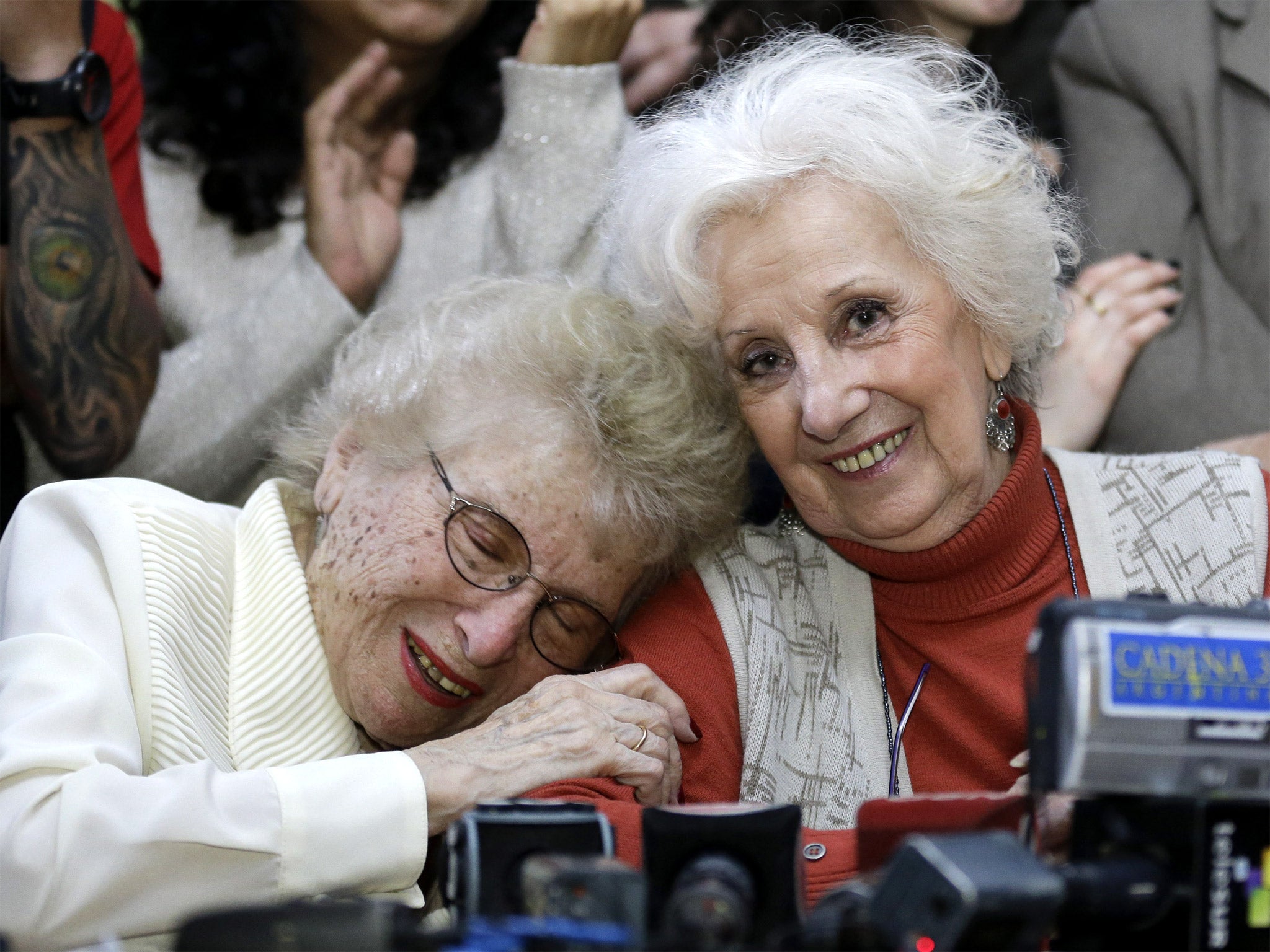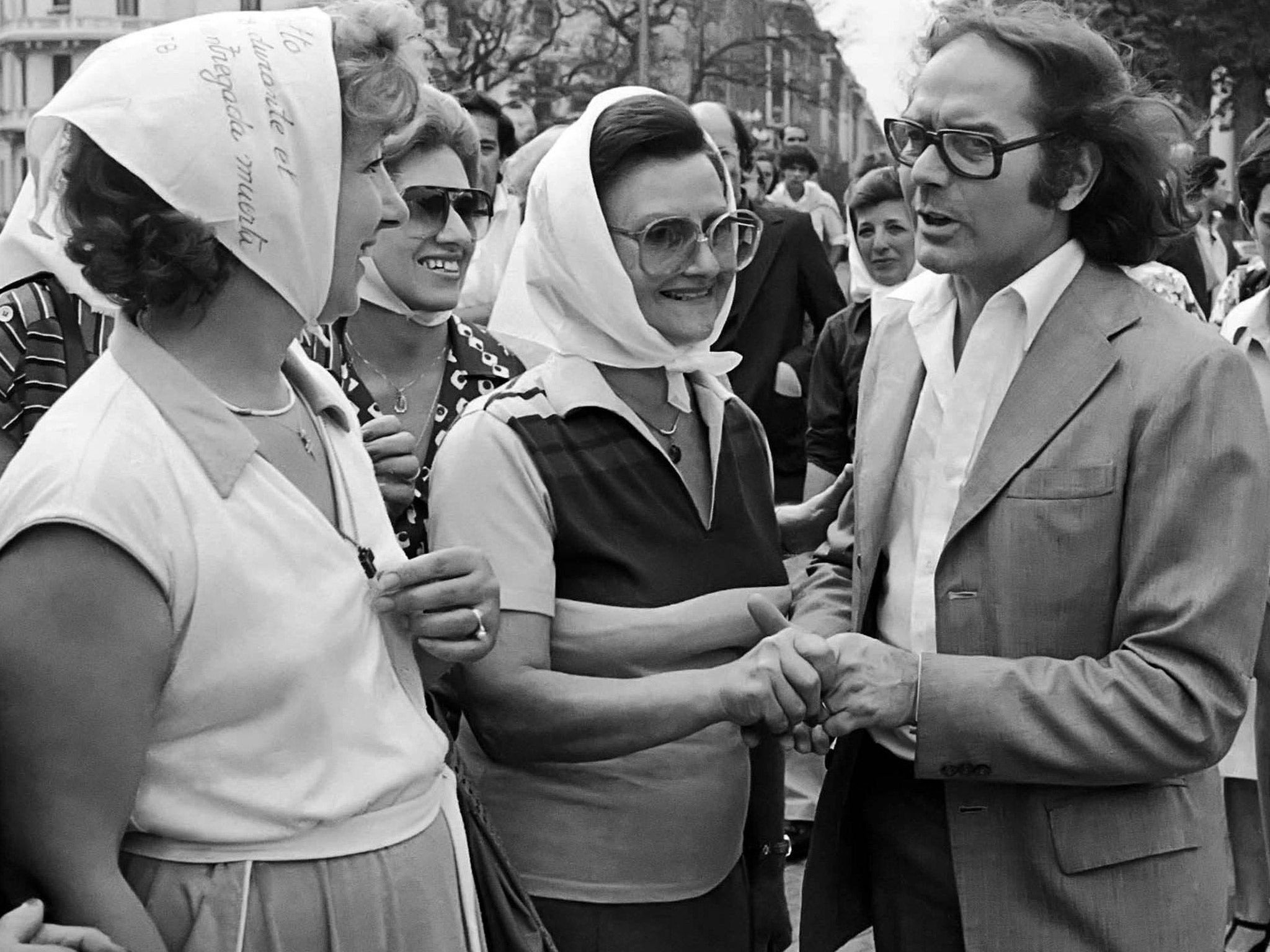Grandmother’s campaign reunites her with grandson taken by Argentinian junta
Under military rule, dissidents’ families were torn apart, with official statistics stating the dictatorship 'disappeared' at least 13,000 people. Now, 35 years on, there is progress

Your support helps us to tell the story
From reproductive rights to climate change to Big Tech, The Independent is on the ground when the story is developing. Whether it's investigating the financials of Elon Musk's pro-Trump PAC or producing our latest documentary, 'The A Word', which shines a light on the American women fighting for reproductive rights, we know how important it is to parse out the facts from the messaging.
At such a critical moment in US history, we need reporters on the ground. Your donation allows us to keep sending journalists to speak to both sides of the story.
The Independent is trusted by Americans across the entire political spectrum. And unlike many other quality news outlets, we choose not to lock Americans out of our reporting and analysis with paywalls. We believe quality journalism should be available to everyone, paid for by those who can afford it.
Your support makes all the difference.Hers was just one of the many unsolved mysteries from Argentina’s “dirty war”. After her daughter’s baby was taken away, Estela de Carlotto led a campaign to reunite the children snatched by the military junta with their biological families. Now, Ms de Carlotto has found her own grandson.
He was taken from her daughter while she was a prisoner of the military dictatorship in the 1970s. Surrounded by her large extended family, an emotional Ms de Carlotto, the founder of Grandmothers of the Plaza de Mayo, announced that her long hunt for her grandchild had ended, while acknowledging that hundreds of other families were still searching.
“Thanks to God, thanks to life, because I didn’t want to die without embracing him and soon I will be able to,” the 83-year-old grandmother said at a news conference covered live on national TV. She has not yet met her grandson.
The man, now 36, came forward of his own volition to have a DNA sample taken and compared with a national database, because he had doubts about his own identity, according to Guido Carlotto, a son of Ms de Carlotto who is the human rights secretary for Buenos Aires Province.
Argentine media identified the man as Ignacio Hurban, a pianist and composer who is director of a music school in the city of Olavarria, south-west of Buenos Aires.
Mr Carlotto said the DNA test revealed with a compatibility match of “99.9 per cent” that the man was the son of Laura Carlotto, a university student activist who was executed in August 1978, two months after she gave birth, while being held under the dictatorship’s brutal campaign against guerrillas and other opponents of the regime.
The announcement of the news drowned out media coverage of the recent default forced on the country by a legal dispute with US investors.

Ms De Carlotto is considered a symbol of the struggle for justice for victims of the 1976-83 dictatorship that, according to official statistics, “disappeared” at least 13,000 people. Activists say the real death toll was double that.
Laura Carlotto was a Peronist militant detained while pregnant in November 1977 along with the baby’s father, Oscar Montoya, a member of the Montoneros guerrilla group. He also was executed.
The Grandmothers of the Plaza de Mayo believe about 500 children were seized from people killed by the dictatorship and given to couples who supported the government.
The group has so far helped to identify 114 of the illegally adopted children and successfully pushed for the creation of the DNA database to enable people illegally adopted to find out their real identities.
Two former dictators were eventually convicted along with others of systematically kidnapping children. Jorge Rafael Videla died in prison in May 2013 while serving a 50-year sentence. Reynaldo Bignone remains in prison.
Ms De Carlotto said the parents who received and brought up her grandson “may have done so innocently”, not knowing the newborn’s origins. “We don’t have the whole story yet, but we are going to get it,” she said.
AP
Join our commenting forum
Join thought-provoking conversations, follow other Independent readers and see their replies
Comments